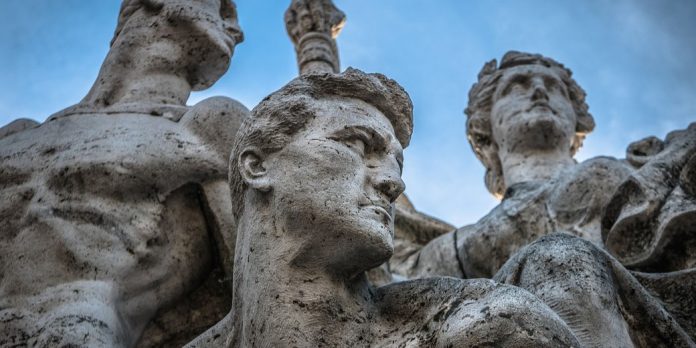Introduction
Gaius Marius, a prominent figure in Roman history, left an indelible mark on both the military and political landscapes of ancient Rome. Born into modest circumstances, Marius rose to unprecedented heights, leaving a legacy that would influence Roman affairs for generations. Gaius Marius, born in 157 BC, emerged as a transformative figure whose life unfolded at the intersection of war and politics. His journey from a humble background to seven consulships, a feat unparalleled in Roman history, underscores the significance of his contributions.
Early Life of Gaius Marius
Marius hailed from Arpinum, a small town outside Rome. Raised in a farming family, his early years were marked by a thirst for knowledge, prompting him to pursue education in Rome and subsequently join the military.
Military Career Beginnings
Marius’ entry into the Roman army marked the beginning of a storied military career. His prowess in battle and strategic acumen earned him recognition, laying the foundation for his future impact on Roman military affairs.
Reforms in the Roman Military
A turning point in Marius’ legacy was the implementation of the Marian reforms. These changes revolutionized the Roman army, introducing the concept of a professional standing army and reshaping the dynamics of warfare.
Political Ascendancy
Transitioning from military triumphs to political prominence, Marius became a central figure in Roman politics. His charisma and leadership qualities propelled him to key political positions, setting the stage for a life that intertwined with the fate of the Republic.
The Jugurthine War
Marius’ involvement in the Jugurthine War showcased his military prowess and political maneuvering. The consequences of this conflict reverberated in Roman politics, solidifying Marius’ standing as a formidable force.
The Social War
As Rome grappled with internal strife during the Social War, Marius played a crucial role in navigating the complexities of the conflict. His decisions shaped the political landscape, influencing the course of Roman history.
Conflict with Sulla
The rivalry between Marius and Sulla became a defining element of Roman politics.the Marius’ exile and subsequent return highlighted the volatile nature of power struggles within the Republic.
Marius’ Seven Consulships
Marius’ achievement of seven consulships remains a historical anomaly. Each term brought unique challenges and triumphs, showcasing his ability to navigate the intricate world of Roman politics.
Final Years and Death
In the twilight of his career, Marius faced a decline in political influence. The circumstances surrounding his death marked the end of an era, but his impact endured through the annals of Roman history.
Legacy of Gaius Marius
Gaius Marius left an enduring legacy that transcended his lifetime. His contributions to the Roman military and political landscape shaped the trajectory of the Republic, leaving an indelible imprint on its history.
Historical Perspectives on Marius
Contemporary historians viewed Marius through various lenses. While some praised his military acumen, others critiqued his political maneuvers. Modern interpretations offer nuanced insights into the complexities of Marius’ character and actions.
Key Contributions to Roman Military Tactics
Marius’ innovations in military tactics, including changes to the composition of the legions and recruitment practices, had a profound and lasting impact on the Roman army’s effectiveness in subsequent conflicts.
Personal Traits and Leadership Style
Examining Marius’ traits reveals a complex individual—a mix of strategic brilliance and political pragmatism. His leadership style, characterized by adaptability and decisiveness, played a pivotal role in his success.
Conclusion
Gaius Marius, a figure of contradictions and achievements, carved a path through the annals of Roman history. His life in war and politics serves as a testament to the intricate interplay between individual ambition and the destiny of a nation.
FAQs
What were the Marian reforms, and how did they change the Roman military?
The Marian reforms, implemented by Gaius Marius, transformed the Roman military by introducing a professional standing army and reshaping recruitment practices.
How did the rivalry between Marius and Sulla impact Roman politics?
The rivalry between Marius and Sulla led to political turmoil, including Marius’ exile and subsequent return, highlighting the volatile nature of power struggles within the Republic.
What is the significance of Marius’ seven consulships?
Marius’ seven consulships were an unprecedented achievement in Roman history, showcasing his political prowess and ability to navigate. The complexities of Roman politics.
What lasting contributions did Marius make to Roman military tactics?
Marius’ contributions to Roman military tactics included innovations in legion composition and recruitment practices. Which had a profound and lasting impact on the effectiveness of the Roman army.



![How to Decode Google’s SEO Core Update [2024] SEO Core Update 2024](https://techinform.co.uk/wp-content/uploads/2024/03/seo-core-update-2024-218x150.jpg)



